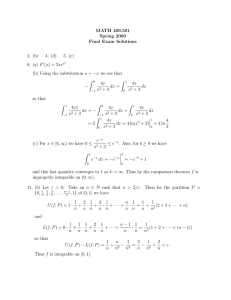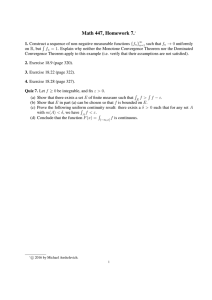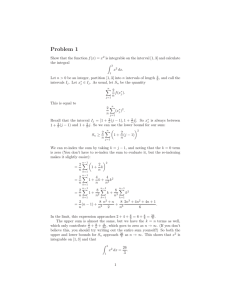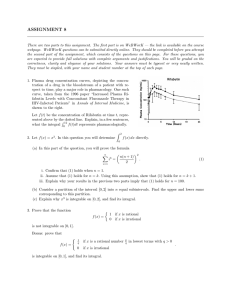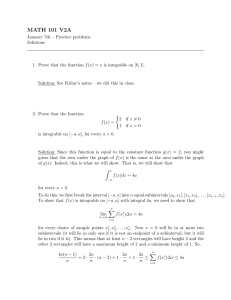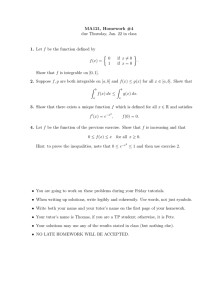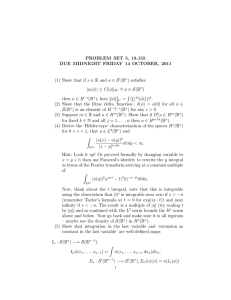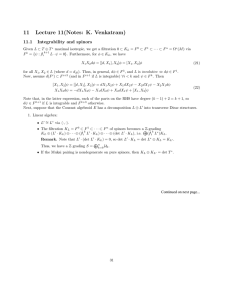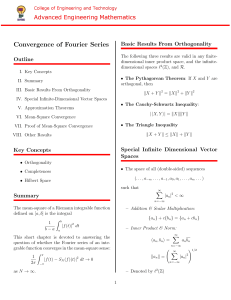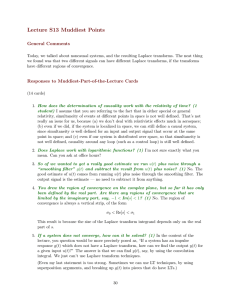Differentiating Under the Integral
advertisement
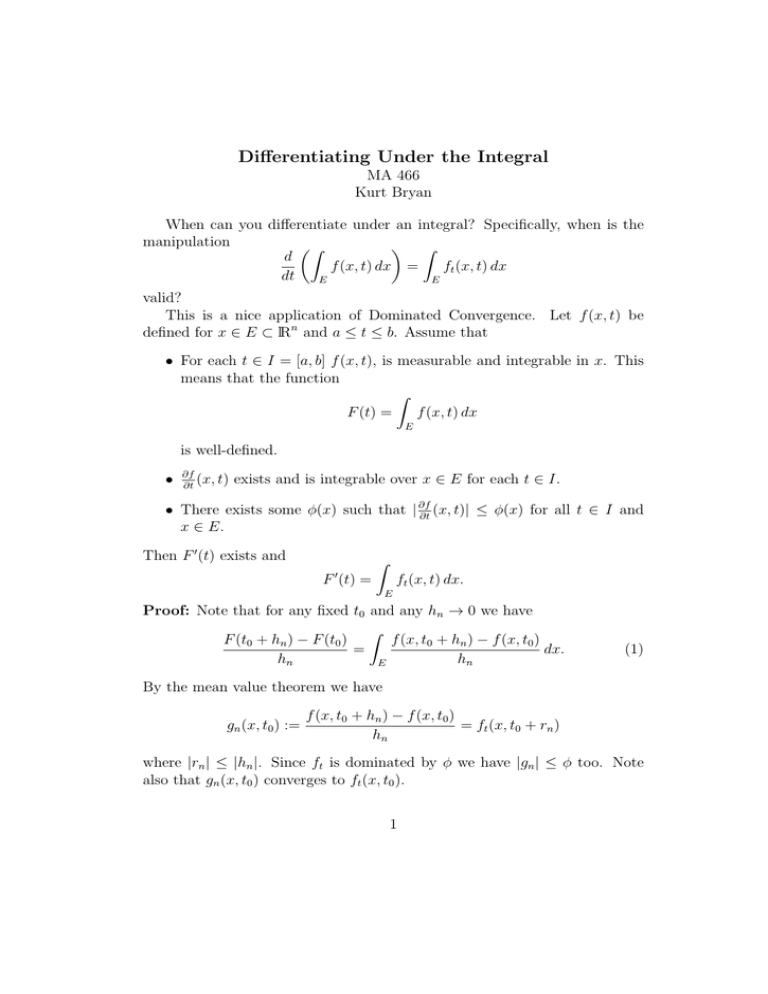
Differentiating Under the Integral MA 466 Kurt Bryan When can you differentiate under an integral? Specifically, when is the manipulation (∫ ) ∫ d ft (x, t) dx f (x, t) dx = dt E E valid? This is a nice application of Dominated Convergence. Let f (x, t) be defined for x ∈ E ⊂ lRn and a ≤ t ≤ b. Assume that • For each t ∈ I = [a, b] f (x, t), is measurable and integrable in x. This means that the function ∫ F (t) = f (x, t) dx E is well-defined. • ∂f (x, t) ∂t exists and is integrable over x ∈ E for each t ∈ I. • There exists some ϕ(x) such that | ∂f (x, t)| ≤ ϕ(x) for all t ∈ I and ∂t x ∈ E. Then F ′ (t) exists and ′ ∫ F (t) = ft (x, t) dx. E Proof: Note that for any fixed t0 and any hn → 0 we have ∫ F (t0 + hn ) − F (t0 ) f (x, t0 + hn ) − f (x, t0 ) = dx. hn hn E (1) By the mean value theorem we have gn (x, t0 ) := f (x, t0 + hn ) − f (x, t0 ) = ft (x, t0 + rn ) hn where |rn | ≤ |hn |. Since ft is dominated by ϕ we have |gn | ≤ ϕ too. Note also that gn (x, t0 ) converges to ft (x, t0 ). 1 Now equation (1) is just F (t0 + hn ) − F (t0 ) = hn ∫ gn (x, t0 ) dx. E Take the limit of both sides over n and invoke dominated convergence on the right. We get that the limit on the left exists for any hn → 0, and that ∫ ′ F (t0 ) = ft (x, t0 ) dx. E By the way, when would we have | ∂f (x, t)| ≤ ϕ(x)? Well, certainly if ft ∂t is bounded and m(E) < ∞, almost always the case in practice. 2
